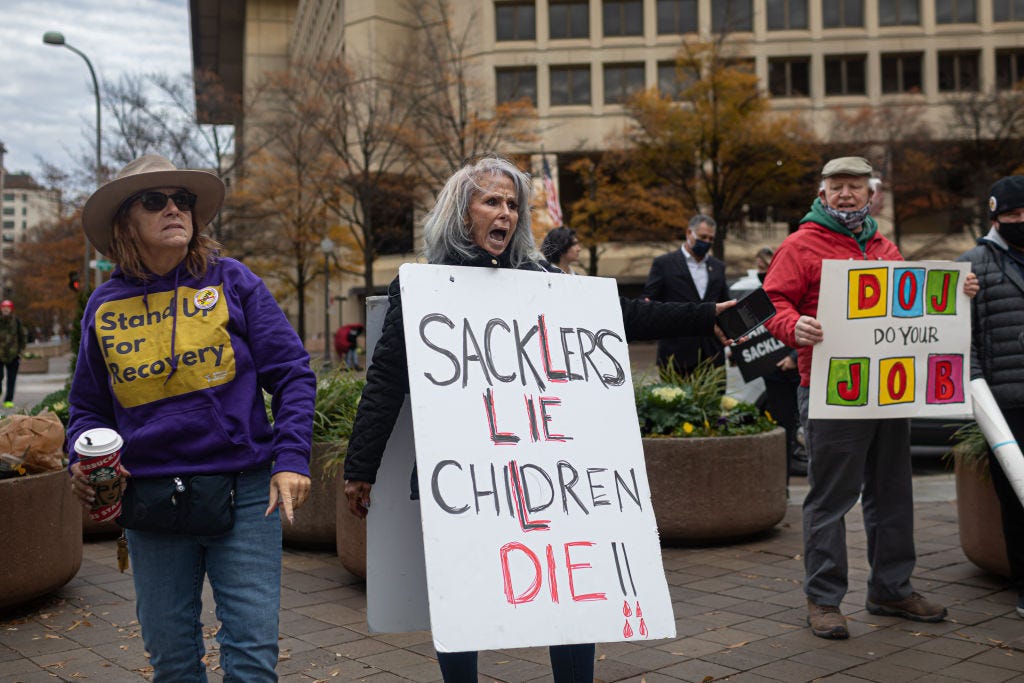We asked a panel of highly-accomplished restructuring professionals to give us their take on ‘24.1 In Part II — coming on Sunday — our panel will look forward to ‘25. Let’s dig in ⬇️.
PETITION: What is the biggest restructuring theme to emerge out of 2024?
Joshua Sussberg (Partner and Member of the Firm’s Executive Committee at Kirkland & Ellis LLP): “Creativity. Restructuring professionals continue to evolve and be even more creative year over year. The desire for companies to avoid chapter 11 filings and the attendant costs (and long drawn out battles), has forced professionals to think even more outside of the box to solve problems. Anyone can get a company into chapter 11. But keeping a company out takes significant creativity and deal making skills that necessitate an acute sense of awareness of the overall situation, business goals and stakeholder base. From locking up creditor support early through aggressive NDAs, to managing to salvage free-fall cases on the verge of liquidation, the restructuring industry has been adapting to this changing landscape and only getting better.”
Scott Greenberg (Partner and Global Chair of Business Restructuring and Reorganization at Gibson Dunn & Crutcher LLP): “LME LME and LME. This was definitely the year that saw a massive uptick in liability management exercises which far outnumbered the amount of traditional filings we saw on our plate.”
Sean O’Neal (Partner at Cleary Gottlieb Steen & Hamilton LLP): “Continued focus on LME transactions rather than formal proceedings.”
David Meyer (Partner, Head of Restructuring and Reorganization, and Member of Management Committee at Vinson & Elkins LLP): “The continued expansion and evolution of LME and extended use and scope of cooperation agreements. LME is now the expectation rather than the exception, creating opportunities for companies, sponsors, and creditors to achieve out-of-court transactions. This trend impacts and will continue to impact the entire industry, including the way in which smart restructuring leaders staff and train their practice groups.”
Michael Eisenband (Global Segment Leader of FTI Consulting’s Corporate Finance & Restructuring Group): “Creditors’ willingness to ‘kick the can’ with many distressed exposures to avoid a formal restructuring. Distressed debt exchanges (DDE) will account for nearly 55% of all default events this year per S&P — an all-time high — and it has been close to 50% for the last few years. Creditors continue to take a flyer on teetering credits with these DDEs despite the demonstrated tendency of many of them to subsequently re-default and the diminished recovery prospects of another DDE or bankruptcy filing. Hope dies hard, and so the pipeline of future restructuring activity continues to build.”
Brian Bolin (Partner at Paul Weiss Rifkind Wharton & Garrison LLP): “The “offered to all” version of the non-pro rata uptier transaction. The first iteration of non-pro rata uptiers (e.g., Serta, Trimark, Boardriders, etc.) involved a majority lender group exchanging its debt into priming debt in return for new-money financing, debt discount, or other concessions, with the minority lenders being left out of the transaction. Beginning in 2023 with Robertshaw and Rodan + Fields, and accelerating in 2024 with GoTo Group, Apex Tool, EyeCare Partners, United Site Services, and others, issuers have been following this initial exchange with a second-step exchange offer to the minority lenders, albeit often on less advantageous terms. In some cases issuers have been able to obtain nearly 100% participation in the second-step exchange, allowing them to maximize debt discount, extend maturities, minimize litigation risk, and ultimately avoid (or at least delay) the need for a full-blown restructuring.”
Cullen Speckhart (Partner and Chair of Business Restructuring at Cooley LLP): “Upswing in issues related to uptiers. In 2024 we’ve learned quite a bit about strengths, weaknesses, and questionable characteristics of various LME transactions (in particular, uptier exchanges and similar transactional permutations). We’ve received some mixed messages on how to predict the outcome of litigation challenges (Serta, Robertshaw, Incora), and we continue to await guidance from the Fifth Circuit regarding applicability and meaning of open market purchase provisions in credit agreements. Meanwhile, new blocking provisions are popping up in loan contracts purporting to prohibit uptiers, while cooperation agreements mandating that all participating creditors act as a group in restructuring negotiations are becoming more common.”
Damian Schaible (Partner and Co-Head of Restructuring at Davis Polk & Wardwell LLP): “Liability Management 2.0 — Gone are the days of the “left behind” non pro rata deal. Like a troublesome toddler who grows into a precocious and crafty pre-teen, LM has grown up from its litigious and messy roots to become more strategic and organized (but no less problematic). The transactions are almost always driven opportunistically by sponsors and the non pro rata elements (differential economics and exchange ratios) are designed to coerce full participation and avoid litigation.”
Ryan Preston Dahl (Partner and Chair of Business Restructuring at Ropes & Gray LLP): “The proliferation, if not ubiquity, of the co-op agreement and its continued evolution. At the risk of making an obvious point, co-op agreements were far and away the exception, not the rule, 4 or 5 years ago. Now, co-ops, and their limitations, are almost ‘the’ defining feature of the liability management process: Who gets to sign the co-op? Who gets to extend the co-op? Under what conditions? What other rights do co-op parties have? Are co-op parties even able (or willing) to enforce those rights? Those questions are becoming much more relevant by the day, and that is not stopping.”
Michael Handler (Partner at King & Spalding LLP): “In the syndicated loan space, Cooperation Agreements have evolved to play a significant role in setting table for restructuring transaction. This was a major talking point in 2024.”
Sanjeev Khemlani (Chairman of Senior Lending Advisory at Lazard): “While not emergent, the acceleration of liability management transactions and the role of private credit as the proverbial bid away are key themes of 2024. Companies no longer just view their credit agreements as an obligation, but at times, an asset that allows it to extend the runway and preserve optionality. Furthermore, as capital allocated to private credit continues to grow, the market has served as the bid away for issuers as their advisors open negotiations around discount capture, maturity extension, rate reduction, and raising incremental liquidity.”
Erica Weisgerber (Partner at Debevoise & Plimpton LLP): “Liability management, of course! Notwithstanding continued litigation in the background, the market has made it clear that liability management transactions are here to stay. In typical restructuring industry fashion, when an idea works, it is iterated on — mechanics and structures tweaked, bells and whistles added — until the concept is pushed to its logical extreme. Only when ensuing litigation outcomes conclusively and decisively suggest that the risk outweighs the reward will the pendulum swing back in the other direction. We don’t appear to be there yet.”
Brett Miller (Partner and Co-Chair of Restructuring at Willkie Farr & Gallagher LLP): “The quickie bankruptcy — file with an RSA but have a sale process immediately teed up under which the parties to the RSA can decide whether to go forward with a sale or do a debt/equity deal. In and out in under 120 days.”
Jeffrey Cohen (Partner and Chair of Bankruptcy & Restructuring at Lowenstein Sandler LLP): “It’s not every year that the restructuring industry needs to “slip and move” in response to a SCOTUS ruling that impacts nearly every large chapter 11 filing. In 2024, courts began to set post-Purdue parameters on what qualifies as consent to a third party release. So “creditor consent” is the biggest theme emerging out of 2024 … who knew?”
Andy Dietderich (Partner and Co-Head of Global Finance & Restructuring at Sullivan & Cromwell LLP): “The return of workouts driven by buy-and-hold lenders with giant AUM and modest return expectations, rather than opportunistic funds with modest AUM and giant return expectations. We used to call those types of lenders “banks.” And they had internal workout departments for a reason. In the near future several funds with massive AUM and boring-but-safe workout teams will dominate the creditor side on all the vanilla credits. Cooperation agreements are so old school. When I see a cooperation agreement, I think commercial bankers circa 1970. No one was going to do a drop down on those dudes. They’d turn off your market access with a wink at each other between Martini Two and Martini Three.”
PETITION: What would be your selection for the most impactful restructuring matter of the year and why (don't shamelessly list your own work)? Feel free to acknowledge a matter that filed for chapter 11 or one that restructured out-of-court.
Erica Weisgerber: “Purdue, hands down. The decision will alter chapter 11 practice and strategy, at least in the mass tort context, and can be expected to change the dynamics in negotiations with committees and future claims representatives in mass-tort bankruptcy cases. Moreover, follow-on litigation has begun to (and will continue to) proliferate: including issues relating to whether opt-out or opt-in plan provisions constitute a ‘consensual’ release, exculpation, whether a plan provides for the ‘full satisfaction of claims’ against a third-party non-debtor, and more.”
Brett Miller: “Purdue Pharma (still) - we need to figure out what we are going to do about 3rd party releases.”
Rachel Albanese (Partner and Co-Chair of US Restructuring at DLA Piper LLP): “Purdue for the second year in a row. It’s continuing to impact case strategy, the definition of consent, Congress’s and the public’s view of bankruptcy, etc.”
Brian Resnick (Partner and Head of Liability Management & Special Opportunities at Davis Polk & Wardwell LLP): “Purdue for another year. Market is watching to see what comes next for resolving mega mass tort situations.”
Joshua Sussberg: “The impact of the Purdue ruling. It is coming up in every single case. And it is the ripple effects of Purdue -- rather than the decision itself -- that is most impactful. The opinion’s ruling is narrow, but some of the lower courts have been reexamining related issues that practitioners thought were fairly settled law. This means more contested confirmation hearings and litigation surrounding release issues even if the economic stakeholders are all supportive of the Plan.”
Scott Greenberg: “I would say the Purdue decision over the summer was the most important ruling of the year. Its not every year the Supreme’s touch a bankruptcy related case—and the impact on third party releases definitely had a significant impact on the way restructuring professionals looked at chapter 11 as a solution to clean up claims.”
David Meyer: “Purdue. Every restructuring matter considers the applicability and fall-out of the Supreme Court’s decision when structuring key points of the restructuring transaction. While it would be an overstatement to say it changes the way deals get structured or the negotiating dynamics in most (but not all) deals, restructuring professionals need to address its impact in every single in-court restructuring over the past calendar year. And we will continue to see similar objections and litigation over the next calendar year.”
Michael Eisenband: “It seems like old news by now, but the Supreme Court’s June decision prohibiting non-consensual releases of claims against non-debtors in a plan of reorganization makes Purdue Pharma the most impactful case of the year, as the decision will impact bankruptcies for years to come, even beyond mass tort cases, and sent the proposed Sackler settlement back to the drawing board. For all the anticipation around the time of the SCOTUS decision and the immediate reaction, it has gone relatively quiet since.”
Andy Dietderich: “Anything using the ridiculously favorable new scheme arrangement in London. On the right facts, that statute rocks. It’s going to be part of the option set for lots of cross-border cases — and clients are going to want firms with real credentials on both sides of the pond.”
Michael Handler: “Incora.”
Sean O’Neal: “Situations involving LME transactions (e.g., Incora, Pluralsight, and the like).”
Damian Schaible: “Maybe Pluralsight. Liability management (lite) enters the private credit market to much fear and trembling in the market.”
Joshua Feltman (Partner and Chair of Restructuring & Finance at Wachtell Lipton Rosen & Katz LLP): “Incora, for two reasons. First, despite the turnover on the bench, the SDTX has remained a go-to venue for its efficient proceedings, and Incora suggests that this efficiency is not inconsistent with a thoughtful approach to challenging issues arising from prepetition LM transactions. Second, the new money tranche of an LM deal taking it on the chin is just inherently big news that will necessarily sober the market some, likely driving participants toward deals with broader participation and consensus.”
Cullen Speckhart: “WeWork. It’s impacts were both general in nature at the commercial real estate and coworking industry levels, and also specific as to a large number of stakeholders with direct involvement with the Debtors (to include lenders, landlords, employees and trade). Hard to fathom a case of more sweeping direct and indirect implications in 2024.”
Ryan Preston Dahl: “Most impactful restructuring, in my mind, is the pending Alex Jones/InfoWars bankruptcy and related sale process. The issues coming out of that case present so many very real tensions we are seeing as a society: the responsibilities and duties associated with free speech, the societal impact of gun control (or the limits of such controls), victims’ rights, the relationship between money and speech, the list goes on. Much as I think uptiers, prepacks, and the like are professionally interesting, those issues are much more important.”
PETITION: What would be your selection for the most clever restructuring matter of the year and why (don't shamelessly list your own work)? Feel free to acknowledge a matter that filed for chapter 11 or one that restructured out-of-court.
Andy Dietderich: “The really clever ones leave no fingerprints.”
PETITION: Uh … 👀.
Michael Handler: “Black Diamond’s lawsuit seeking to exercise proxy rights to remove D&Os in Del Monte is an innovative approach to a post-LME remedy/redress strategy.”
Sean O’Neal: “Genesis Global, the crypto company, where the Debtors and creditors came together to maximize in-kind recoveries, without capping claims at petition date values or otherwise selling crypto assets at low prices in comparison to the current market.”
Michael Eisenband: “I don’t know if it’s cleverness or sheer persistence, but Johnson & Johnson’s filing of its Red River Talc LLC subsidiary after its two previous “Texas Two Step” filings by LTL Management were tossed as bad faith filings by the Third Circuit is a testimony to J&J’s determination to ringfence and resolve its talc-related claimant liabilities. J&J’s latest filing is in a new venue (SDTX) with a new subsidiary, a better offer to talc claimants and requisite claimant acceptances, but J&J’s ultimate intention hasn’t wavered since 2021. If at first you don’t succeed, try and try and try again. This one looks more promising, but the US Trustee maintains this too is a bad faith filing, so it’s far from a done deal.”
Scott Greenberg: “I think many of the LME styled transactions were “clever.” Whether it was Lumen, Rackspace, AMC or others. The new and creative thinking behind these transactions broke new ground and made all advisors test their creativity.”
Sanjeev Khemlani: “SI Group, a SK Capital Group portfolio company in the chemicals sector, was a bellringing transaction where the hunter became the hunted. A group of opportunistic buyers of debt accumulated significant positions in the near-term maturity with the goal of pursuing a recapitalization whether in partnership with, or despite, the sponsor. Understanding the potential implications, par investors – at the time holding a minority of the loans – partnered with the revolver banks to launch a transaction with barely 50.1% to protect their interests and advantage their longer-dated bonds. It was a flawed assumption to believe that the par loan investors could not be the aggressors and served as an inflection point in the market.”
Erica Weisgerber: “Vialto. Vialto is an international provider of tax and immigration services across dozens of jurisdictions that couldn’t file for chapter 11 because it’s a people business. Recognizing this, the company, its sponsor and its second-lien debtholder teamed up for an out-of-court transaction that will reduce debt by approximately $700 million and raise $225 million in new money equity, avoiding an inevitably messy bankruptcy and the potential destruction of the business. A great example of clever collaboration to achieve a solid outcome for the company and its stakeholders.”
Brett Miller: “To quote Spinal Tap, ‘there is a fine line between stupid and clever….’ Some of the quickie bankruptcies have failed miserably (no bids and the lenders really don’t want to own the company) while others have worked out well.”
David Meyer: “AMC. A further step in a series of transactions to reduce leverage and extend maturities. Keep rocking.”
Cullen Speckhart: “Gamida Cell’s global restructuring through a novel use of debt arrangement proceedings in Israel combined with Chapter 15 and 11 proceedings in the United States, which involved taking Gamida Cell private through a conversion of approximately $75 million of the Company’s existing funded debt obligations into 100 percent of the equity of the reorganized company and any of its affiliates.”
PETITION: Certainties in life: death, taxes, and RX pros talking their own books. 😜
PETITION: Macro or otherwise, who is your biggest winner of the year?
Brian Resnick: “Delaware bankruptcy bench. Chapter 11 mega cases are coming back home.”
David Meyer: “Investment bankers capitalizing on the LME environment up and down the capital stack.”
Scott Greenberg: “Sponsors writ large — they are the biggest beneficiary from these out of court LMEs.”
Andy Dietderich: “I can’t believe I’m saying this, but its g$#damn crypto.”
Erica Weisgerber: “The crypto industry stands out as a clear winner. The price of Bitcoin has skyrocketed as it has achieved mass adoption. Tens of millions of owners worldwide hold Bitcoin and there are over 30,000 Bitcoin ATMs around the world, the majority of which are in the United States. BlackRock’s IBIT ETF was one of the most successful ETF launches of all time, and Bitcoin hit 6.3 billion of inflows in November and is today sitting at a 1.9 trillion dollar market cap. Our industry saw this on display with the better-than-expected outcome in the FTX bankruptcy. With the advent of a new administration anticipated to be friendly to crypto overall, 2025 should see further growth for the sector.”
Joshua Feltman: “Crypto and private prisons.”
Ryan Preston Dahl: “Latham & Watkins. They are closing out 2024 with a real boost to an already-strong platform. It is going to be hard to fight their momentum heading into the new year — perhaps best to just stay out of they way.”
Jeffrey Cohen: “The Latham & Watkins restructuring department has clearly gone “all in” with their recent lateral acquisitions. I wish the best of luck to Ray Schrock and team. He’s joining a wealth of talented restructuring lawyers. Let us not forget, however, that Weil is still going to be Weil and remains in very good hands with Matt Barr and Ronit Berkovich, among others.”
Michael Eisenband: “Elon Musk. It’s so reassuring to know that career elitists soon will be gone from Washington — and replaced by billionaire elitists.”
Michael Handler: “MAGA.”
Rachel Albanese: “Donald Trump.”
Cullen Speckhart: “Taylor Swift (again).”
Brett Miller: “Juan Soto and all the restructuring professionals who followed in his footsteps. Second place has to be the SDTX as it appears to be alive and well (for now).”
PETITION: Macro or otherwise, who is your biggest loser of the year?
Andy Dietderich: “Any distressed fund that only trades and does not have either a lending business or lots of luck.”
Ryan Preston Dahl: “The Chicago Bears. The Bears are basically 6 plays and some clock management away from being a 10+ win football team. But here we are.”
Sean O’Neal: “The freefall reorganization.”
Erica Weisgerber: “With de-regulation, possible upcoming tariffs, and more, the conventional answer is probably the American consumer.”
Rachel Albanese: “The American people.”
Michael Handler: “Liberal Democracy.”
Michael Eisenband: “It’s a tie between Intel and Boeing, neither of whom seems to be doing much right these days. There is an object lesson here: never rest on your laurels. Both these companies dominated their industries for decades and now are struggling to find their way again. It’s the flip side of why today’s dominant trillion-dollar companies are still obsessed with growth and innovation. You can’t stay on the top of the mountain forever; you’ve got to keep moving. But often it’s exhausting.”
Damian Schaible: “Not plowing every dollar I have into crypto when it became clear Trump was going to win….”
Brett Miller: “Judge Jones, Jackson Walker, and anyone else caught up in the SDTX drama.”
Brian Resnick: “The entire restructuring industry for still not being able to figure out the “Lady Whistledown” author(s?) of Petition.”
David Meyer: “Virginia. I’m a huge basketball fan and a [notable] has-been athlete. Tony Bennett was an exceptional and underrated point guard at Wisconsin-Green Bay in the early 1990s, and then became one of the premier college basketball coaches at a young age and coached at UVA for the last 15 years. UVA was always well coached, ready to play, disciplined, and a contender to win the ACC and the national championship in any given year. In many ways, their program reflects how any strong professional services organization should be run, and I have great admiration (based on what I know) for how Bennett managed his team and developed players to be both successful basketball players and people. It is devastating to that program to lose him, particularly on the eve of the start of the college basketball season. In addition to this event, Virginia had an unfortunate bankruptcy retention decision.”
⚡️Announcement⚡️
We just want to take a time out and say ‘thank you’ to all of our readers. We couldn’t do what we do without your readership but for those of you who are kind enough to part with your (or your firm’s) hard-earned dollars to support us, 🙏.
If you currently have a seat at a firm that does not have a group subscription with us, please do us and yourselves a favor and lobby internally to get a PETITION subscription in ‘25. We currently have over 32k subscribers — of which there are scores of firms with group subscriptions. Why are you and your colleagues on the outside looking in?
Email us today for a quote: petition@petition11.com.
📤 Notice📤
Dimitri Skambas (Vice President) joined Canaccord Genuity from SRV Partners.
🍾Congratulations to…🍾
Akin Gump Strauss Hauer & Feld LLP (Phillip Dublin, Meredith Lahaie, Joseph Szydio, Marty Brimmage) for securing the legal mandate on behalf of the official committee of unsecured creditors in the Northvolt AB chapter 11 bankruptcy cases.
Ariel Emmanuel on his promotion to Counsel at King & Spalding LLP.
Christian Jensen on his promotion to Partner at Sullivan & Cromwell LLP.
Jackson Garvey on his promotion to Partner at Sidley Austin LLP.
Lowenstein Sandler LLP (Jeffrey Cohen, David Posner, Bruce Nathan, Andrew Behlmann, Michael Kaplan) and McDermott Will & Emery LLP (Charles Gibbs, Grayson Williams) for securing the legal mandate on behalf of the official committee of unsecured creditors in the H-Food Holdings LLC chapter 11 bankruptcy cases.
Pachulski Stang Ziehl & Jones LLP (Michael Warner, Benjamin Wallen, Bradford Sandler, Robert Feinstein) and Sills Cummis & Gross PC (Andrew Sherman, Boris Mankovetskiy) for securing the legal mandate on behalf of the official committee of unsecured creditors in the CareMax Inc. chapter 11 bankruptcy cases.
Sarah Primrose on her promotion to Partner at King & Spalding LLP.
📚Resources📚
We have compiled a list of a$$-kicking resources on the topics of restructuring, tech, finance, investing, and disruption. 💥You can find it here💥.
💰New Opportunities💰
PETITION is looking for one MBA and one JD candidate to work with us as paid interns. This is primarily a research and writing position for up to 10-20 hours a week that will give awesome exposure to the worlds of distressed investing, bankruptcy and restructuring. Work is remote. If interested, email us your resume at petition@petition11.com with the subject line “Internship” and we’ll be happy to answer questions. Cheers.











